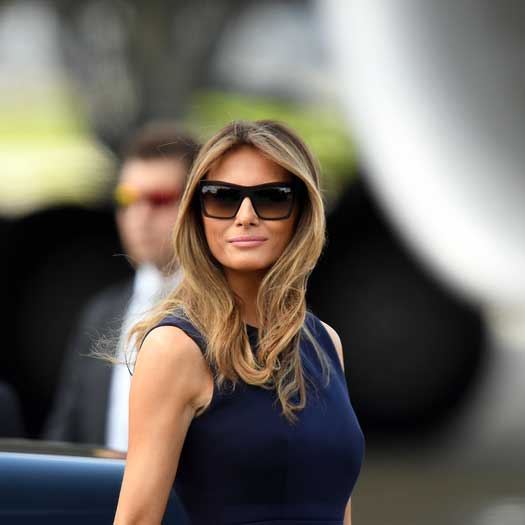In a House Judiciary Committee hearing held on Wednesday, June 25, 2025, Representative Jasmine Crockett of Texas questioned the legitimacy of First Lady Melania Trump’s special immigration visa. The Democratic congresswoman criticized the immigration policies of the Trump administration while scrutinizing the first lady’s journey to U.S. residency.
During the hearing focused on reinstating integrity in the visa process, Crockett accused her Republican colleagues of ignoring issues within the president’s family, despite their support for strict immigration enforcement. She highlighted what she deemed as unfair application and discussion of visa rules.
Crockett brought attention to Melania Trump’s 2001 EB-1 visa, often referred to as the “Einstein visa,” which is designated for individuals with extraordinary abilities. The Texas representative questioned whether the former model from Slovenia satisfied the rigorous criteria required for this prestigious immigration status.
Crockett noted that Melania Trump was a model, clarifying that she was not referring to supermodels like Tyra Banks, Cindy Crawford, or Naomi Campbell, yet she was granted an EB-1 visa. Crockett emphasized the demanding standards of this visa category.
The Texas representative outlined typical qualifications for an Einstein visa, which, according to Crockett, include significant achievements such as a Nobel Peace Prize or a Pulitzer, Olympic medals, or other sustained extraordinary successes in fields like sciences, arts, education, business, or athletics. She pointed out that Melania Trump lacked such accolades when she received her visa.
Before addressing Melania Trump, Crockett criticized the current administration’s immigration policies, describing them as harsh toward individuals with legal visas and American citizens. She argued that true integrity in the visa process should not involve targeting people based on social media posts or using unmarked vehicles in raids.
Crockett concluded her remarks about the first lady’s visa with pointed criticism. “It doesn’t take an Einstein to see that the math ain’t mathin’ here,” she stated, using language she often employs in congressional hearings.
The hearing took a humorous turn when Alex Nowrasteh from the Cato Institute attempted to defend the first lady. Nowrasteh, a witness, commented on Melania Trump’s qualifications.
“Not everybody could marry Donald Trump, and I think that’s quite an achievement, so I think she deserves credit for that,” he remarked, adding: “Nobody up here could have done it.”
Crockett promptly responded to his remark. “You sure are right, I couldn’t do it,” Crockett replied, highlighting the tense atmosphere surrounding discussions of the Trump family’s immigration history.
Melania Trump initially came to the United States in 1996 on a tourist visa, later obtaining work visas for skilled professionals. She was advancing her modeling career in New York City when she met Donald Trump at a party in 1998, significantly increasing her public profile. She received her EB-1 visa and legal residency in 2001.
According to State Department data reported by The Washington Post, only five people from Slovenia acquired green cards through the EB-1 program in 2001, the year Melania Trump obtained hers. This has led to ongoing questions about whether her qualifications truly met the extraordinary standards required.
The EB-1 visa requires individuals to present evidence of a major award or meet three of ten specific criteria proving excellence in their field. These standards include coverage in major publications, original contributions to a field, and work shown at artistic exhibitions. Before applying, Melania Trump appeared on magazine covers, including British GQ and others.
Michael Wildes, Melania Trump’s immigration lawyer, has defended her visa history against similar critiques. In 2018, he asserted that Mrs. Trump had legally obtained her green card and qualified for the extraordinary ability designation. Wildes declined further comment to protect the first lady’s privacy.
Crockett’s remarks sparked strong reactions on social media, with some praising her for highlighting perceived inequalities in immigration enforcement, while others accused her of launching personal attacks on the first lady. The controversy has rekindled broader discussions on fairness in high-profile immigration cases.
The hearing occurred as the Trump administration continues to implement substantial immigration measures, including orders affecting university visa programs and travel bans on several countries. On June 4, President Trump signed an order targeting Harvard University’s student visa program, citing national security concerns regarding Chinese students. Later in June, the administration introduced extensive visa and travel restrictions.
This controversy reflects ongoing political tensions over immigration policy and scrutiny of the Trump family’s own immigration history. Crockett has become a prominent Democratic critic of the administration’s immigration approach, frequently challenging Republican colleagues during congressional hearings with pointed questions that garner considerable media attention.

